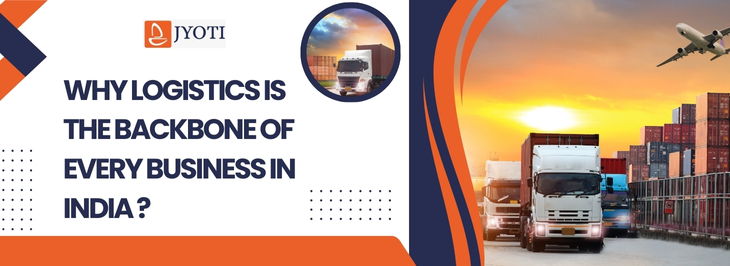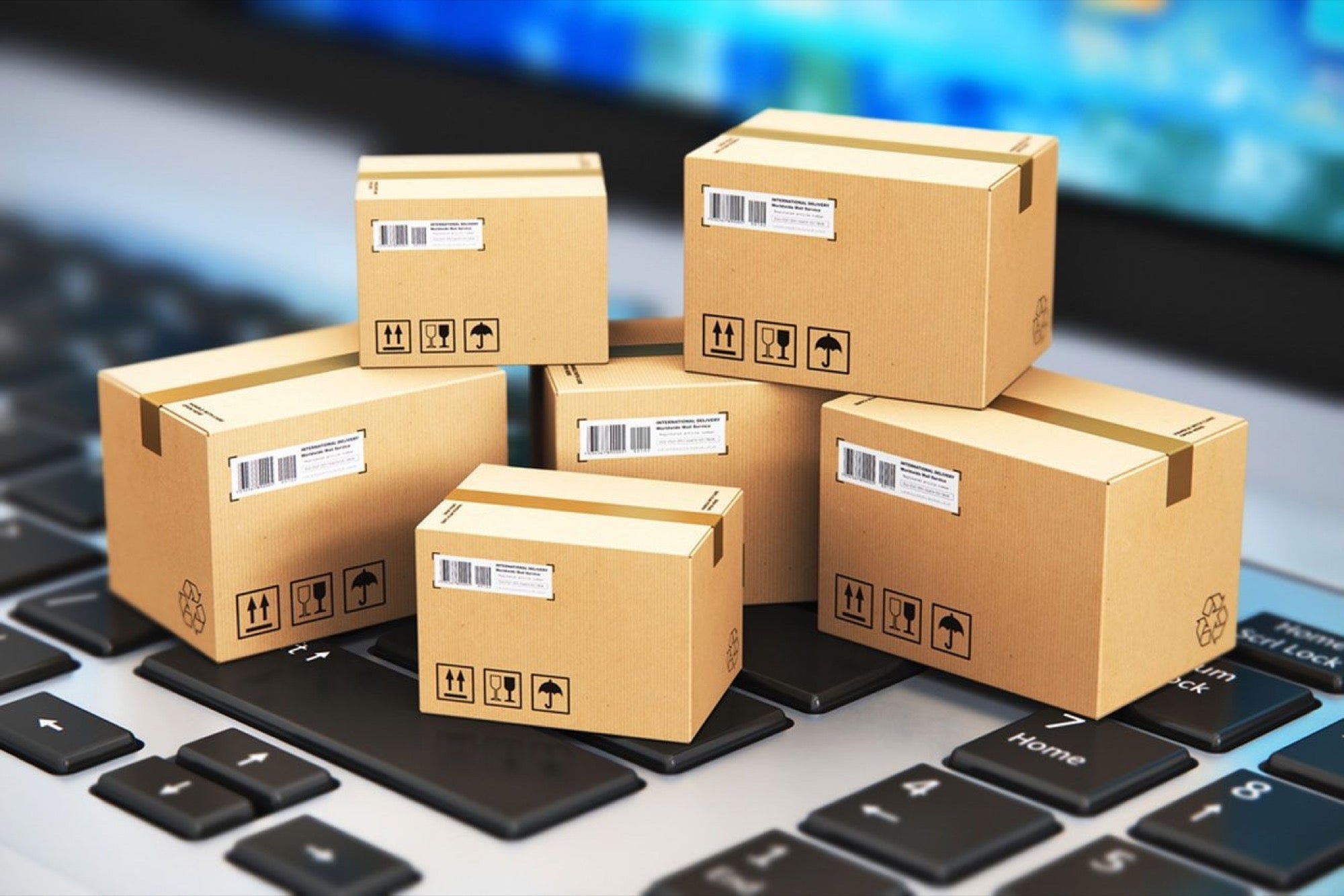It ensures smooth movement of goods, reduces costs, and improves delivery timelines.
Introduction
In the rapidly evolving landscape of Indian commerce, logistics has emerged as the critical force that determines business success or failure. From the bustling markets of Mumbai to the manufacturing hubs in Chennai, and from emerging business centers like Jaipur to the tech corridors of Bangalore, logistics forms the invisible yet indispensable network that keeps India's economy moving forward.
The Foundation of Modern Indian Commerce
India's transformation from an agrarian economy to a global economic powerhouse has been largely facilitated by robust logistics networks. The country's unique geographical challenges – spanning diverse terrains, climates, and infrastructure levels – make logistics not just important, but absolutely crucial for business operations.
Consider the journey of a simple product: from a manufacturing unit in Gujarat to a consumer in Assam. This journey involves multiple transportation modes, warehousing facilities, inventory management systems, and coordination between numerous stakeholders. Without an efficient logistics backbone, this seemingly straightforward process would become a nightmare of delays, damages, and escalating costs.
The significance becomes even more pronounced when we examine India's diverse business ecosystem. Traditional industries like textiles and agriculture require different logistics solutions compared to modern sectors like e-commerce and pharmaceuticals. Logistics Companies in Jaipur, for instance, must cater to both the region's traditional handicraft exports and the growing technology sector, demonstrating the versatility required in modern logistics operations.
Economic Impact and Growth Catalyst
Logistics contributes approximately 13-14% to India's GDP, making it one of the largest economic sectors. However, its impact extends far beyond direct contribution. Efficient logistics systems reduce operational costs for businesses across all sectors, enabling competitive pricing and improved profit margins.
The ripple effect is substantial. When businesses can move goods efficiently, they can expand their market reach, reduce inventory holding costs, and respond quickly to market demands. This efficiency translates into job creation, increased tax revenues, and overall economic growth. Studies indicate that a 10% improvement in logistics efficiency can boost economic growth by up to 2%.
Small and medium enterprises (SMEs), which form the backbone of Indian industry, benefit tremendously from professional logistics services. Many Third Party Logistics Companies have emerged to serve these businesses, providing sophisticated supply chain solutions that were previously accessible only to large corporations. This democratization of logistics services has enabled countless small businesses to compete on a national and international scale.
The Digital Revolution in Indian Logistics
India's logistics sector has undergone a remarkable digital transformation. Advanced technologies like GPS tracking, warehouse management systems, and predictive analytics have revolutionized how goods move across the country. This technological integration has made logistics more transparent, efficient, and reliable.
E-commerce growth has been a major catalyst for this transformation. The explosive growth of online shopping has created unprecedented demand for last-mile delivery solutions, same-day delivery services, and reverse logistics capabilities. Traditional logistics companies have had to adapt rapidly, investing in technology and infrastructure to meet these evolving demands.
3pl Logistics Company providers have embraced this digital revolution, offering integrated solutions that combine transportation, warehousing, and technology services. These companies provide end-to-end visibility of supply chains, enabling businesses to make data-driven decisions and optimize their operations continuously.
Regional Dynamics and Local Expertise
India's logistics landscape varies significantly across regions, each presenting unique challenges and opportunities. Take Rajasthan, for example, where the combination of traditional industries and emerging sectors creates diverse logistics requirements. Transport Service in Jaipur providers must navigate everything from moving precious stones and textiles to handling IT equipment and pharmaceutical products.
Jaipur’s strategic position between Delhi and Mumbai has made it a vital logistics hub. With the expansion of dedicated freight corridors and upgraded road networks, the city’s role as a key regional center in India’s logistics ecosystem has grown significantly.
Regional logistics providers possess invaluable local knowledge – understanding terrain challenges, regulatory requirements, and cultural nuances that can significantly impact operations. This local expertise, combined with national reach, creates a logistics ecosystem that can handle India's complexity effectively.
Infrastructure Development and Future Prospects
The Indian government's focus on infrastructure development through initiatives like the National Infrastructure Pipeline and Bharatmala project promises to further strengthen the logistics backbone. Improved connectivity through highways, railways, and airports will reduce transportation costs and delivery times across the country.
The development of multimodal logistics parks and dedicated freight corridors will create integrated ecosystems where different transportation modes seamlessly connect. These improvements will particularly benefit regions that have historically faced connectivity challenges, opening new markets and opportunities for businesses.
Investment in port infrastructure and inland waterways will enhance India's international trade capabilities, making Indian businesses more competitive in global markets. The emphasis on sustainable logistics solutions, including electric vehicles and green warehousing, positions India as a forward-thinking logistics destination.
Challenges and Opportunities
Despite remarkable progress, Indian logistics faces several challenges. Infrastructure gaps in remote areas, regulatory complexities across states, and the need for skilled workforce development remain significant hurdles. However, these challenges also represent opportunities for innovation and growth.
The fragmented nature of the logistics industry, with numerous small players, is gradually consolidating as businesses seek comprehensive solutions from established providers. This consolidation trend benefits customers through improved service quality and competitive pricing.
Technology adoption, while accelerating, still has tremendous potential for expansion. Artificial intelligence, blockchain, and IoT applications in logistics are in their early stages, promising significant efficiency improvements in the coming years.
Supporting India's Growth Ambitions
As India aspires to become a $5 trillion economy, logistics will play an increasingly critical role. Efficient supply chains will be essential for manufacturing competitiveness, export growth, and domestic market expansion. The logistics sector must continue evolving to support these ambitious goals.
The integration of logistics with emerging technologies like autonomous vehicles, drone delivery, and smart warehousing will create new possibilities for business growth and customer service. Companies that invest in these technologies today will be well-positioned to capitalize on tomorrow's opportunities.
Conclusion
Logistics truly serves as the backbone of every business in India, connecting producers with consumers, enabling economic growth, and facilitating the country's integration with global markets. From established Logistics Companies in Jaipur serving traditional industries to innovative 3pl Logistics Company providers supporting e-commerce growth, the sector continues to evolve and adapt to changing business needs.
The future of Indian business success lies in recognizing logistics not as a cost center, but as a strategic advantage. Companies that invest in robust logistics partnerships and embrace technological innovations will find themselves better positioned to navigate India's complex market dynamics and capitalize on the country's tremendous growth potential.
As India continues its journey toward becoming a global economic superpower, the strength of its logistics backbone will determine how quickly and efficiently this transformation occurs. The businesses that understand and leverage this reality will be the ones leading India's economic success story.
FAQ
They cut costs, handle supply chain operations, and let businesses focus on growth.
Services include transport, warehousing, freight forwarding, and inventory management.
GPS, tracking, and digital systems have made logistics faster and more reliable.
Yes, outsourcing is cost-effective and gives access to expertise and technology.



